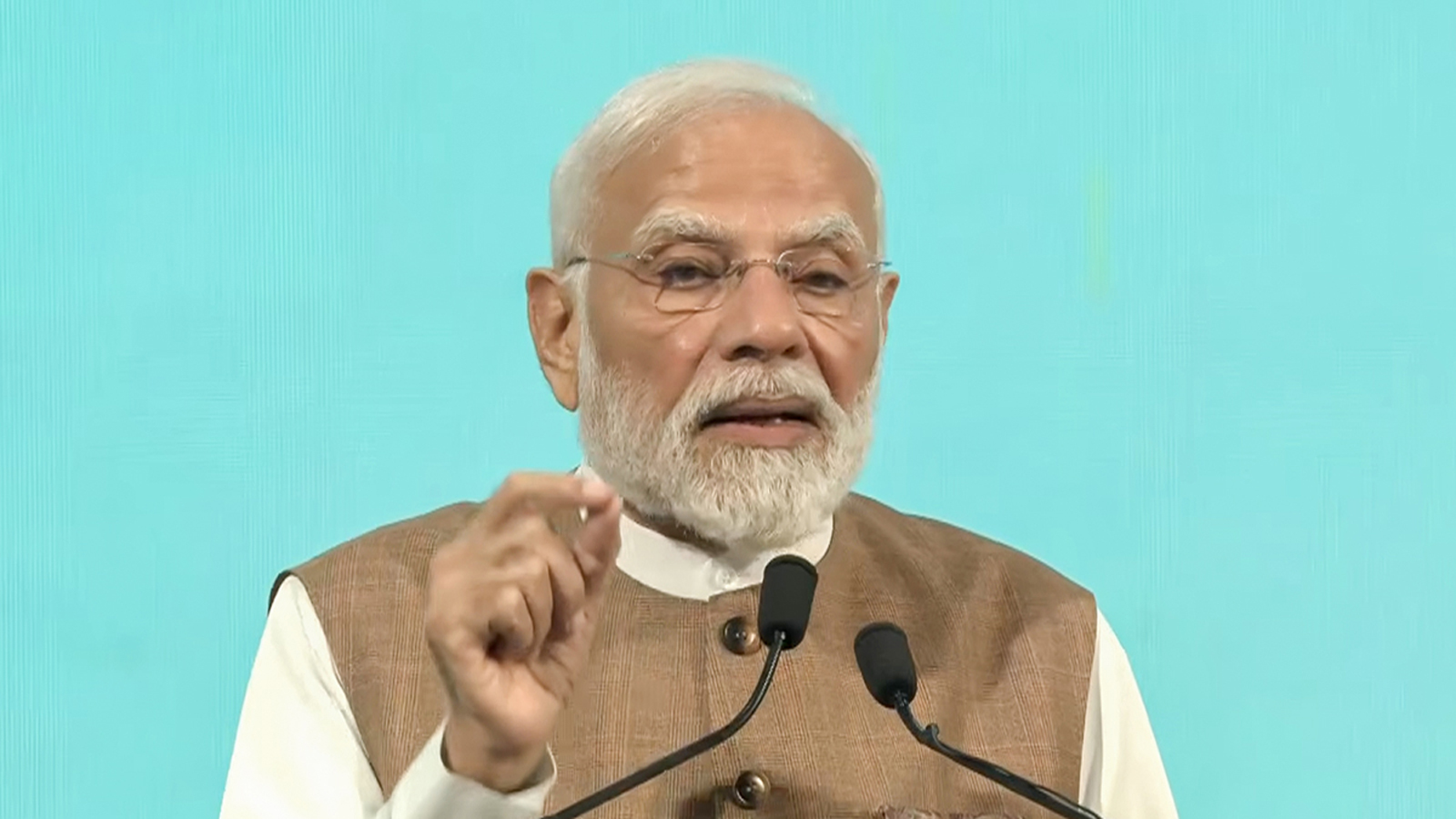Prime Minister Narendra Modi on Wednesday addressed the Maritime Leaders Conclave and chaired the Global Maritime CEO Forum during India Maritime Week 2025 in Mumbai, highlighting India’s emergence as a global maritime power. He said the country’s maritime sector is advancing with “great speed and energy,” backed by major reforms, record investments, and growing international confidence.
Welcoming participants from over 85 countries, including CEOs of global shipping giants, innovators, and policymakers, the Prime Minister said the conclave’s evolution into a global summit reflects India’s rising influence in the maritime domain. “When the global seas are rough, the world looks for a steady lighthouse – India is well poised to play that role with strength and stability,” he said.
PM Modi said that several new projects and agreements worth lakhs of crores of rupees were launched at the conclave, reflecting global confidence in India’s maritime potential. He highlighted key recent milestones, including the operationalization of Vizhinjam Port, India’s first deep-water international trans-shipment hub, which recently received the world’s largest container vessel. He also lauded the commissioning of a megawatt-scale indigenous green hydrogen facility at Kandla Port and the completion of Phase 2 of the Bharat Mumbai Container Terminal at JNPT, which has doubled its handling capacity and made it India’s largest container port.
The Prime Minister said that India has replaced over a century-old colonial-era shipping laws with modern, futuristic legislation designed for the 21st century. These new laws, he said, empower state maritime boards, enhance safety, promote sustainability, and expand digitization. The reformed Merchant Shipping Act, aligned with global conventions, strengthens India’s compliance with international standards and improves the ease of doing business.
He also emphasized the newly enacted Coastal Shipping Act, which simplifies trade and enhances supply chain security, ensuring balanced coastal development. The introduction of the One Nation, One Port Process, he added, will standardize procedures and minimize documentation across ports.
Reflecting on a decade of progress, PM Modi said that India’s maritime transformation has been “historic.” Under the Maritime India Vision, more than 150 new initiatives have nearly doubled port capacity, reduced turnaround time, and boosted cruise tourism. Cargo movement on inland waterways, he noted, has risen by over 700 percent, with operational waterways increasing from 3 to 32.
“Today, India’s ports are among the most efficient in the developing world – and in many aspects, performing even better than those in the developed world,” the Prime Minister said. He cited a reduction in average container dwell time to under three days and a drop in vessel turnaround time from 96 to 48 hours. India’s ports, he added, have improved significantly in the World Bank’s Logistics Performance Index, while the number of Indian seafarers has surged from 1.25 lakh to over 3 lakh, placing the country among the top three globally.
Reaffirming India’s focus on the Blue Economy and Sustainable Coastal Development, PM Modi said shipbuilding is now among the nation’s top priorities. Recalling India’s rich maritime heritage, he noted that the country was once a global hub for shipbuilding and is now regaining that stature. “We have granted infrastructure asset status to large ships,” he said, adding that this will lower financing costs and attract greater investment in shipbuilding.
The Prime Minister announced a government investment of nearly ₹70,000 crore to enhance domestic shipbuilding capacity, develop new shipyards, promote long-term financing, and create millions of jobs for the youth. This, he said, will also support greenfield and brownfield maritime projects and bring global shipbuilders to India.
He further announced that a new mega port is being developed at Vadhavan, Maharashtra, at an estimated cost of ₹76,000 crore, as part of India’s plan to quadruple major port capacity and expand its share in global containerized cargo. PM Modi invited global investors to take advantage of India’s 100 percent FDI policy in ports and shipping, emphasizing that public-private partnerships are accelerating infrastructure growth under the “Make in India, Make for the World” vision.
Drawing inspiration from Chhatrapati Shivaji Maharaj’s maritime legacy, PM Modi said India views its oceans as “gateways to opportunity, not boundaries.” He stressed that amid global tensions and shifting supply chains, India stands as a “symbol of strategic autonomy, peace, and inclusive growth.”
The Prime Minister also reaffirmed India’s commitment to supporting Small Island Developing States (SIDS) and Least Developed Countries (LDCs) through technology, training, and maritime infrastructure. He urged collective action to address challenges such as climate change, supply chain disruptions, and maritime security, calling for global cooperation to build a sustainable and resilient future.
The event was attended by Maharashtra Governor Acharya Devvrat, Chief Minister Devendra Fadnavis, and Union Ministers Sarbananda Sonowal, Shantanu Thakur, and Kirti Vardhan Singh, among other dignitaries.
The Global Maritime CEO Forum, the flagship event of India Maritime Week 2025, brings together global CEOs, investors, policymakers, and innovators to discuss sustainable maritime growth, resilient supply chains, and the future of the blue economy. The week-long event, held under the theme “Uniting Oceans, One Maritime Vision”, features over 500 exhibitors, 350 international speakers, and participation from more than 85 countries – underscoring India’s ambition to become a leading maritime hub by 2047 under the Maritime Amrit Kaal Vision.














